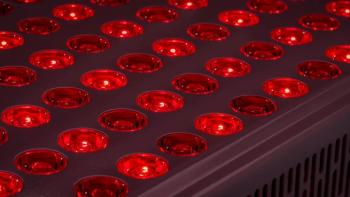For many people, enjoying a drink with dinner or at social gatherings is just a part of life. But have you ever thought about how these choices might affect your vision? Macular degeneration is a leading cause of vision loss as we age, and while genetics play a role, lifestyle choices—like diet, smoking, and drinking—can also make a difference.
Here’s what we know about alcohol’s impact on macular degeneration and whether cutting back can help protect your vision.
What is macular degeneration?
Macular degeneration, also known as age-related macular degeneration (AMD), affects the macula, the part of the retina responsible for sharp central vision. Over time, it can cause blurry or distorted vision, making daily tasks like reading or driving more difficult.
There are two main types:
Dry AMD: The more common form, which progresses slowly over time. The severe form of dry AMD is geographic atrophy.
Wet AMD: A more severe form that can lead to rapid vision loss.
Since there’s no cure, managing risk factors is key to manage macular degeneration. That’s why questions like does alcohol make macular degeneration worse continue to be researched.
Our team of doctors consists of board-certified ophthalmologists and experienced eye surgeons who have seen firsthand how lifestyle choices impact vision health. With over 50,000 eye surgeries performed, our team emphasizes the importance of early detection and lifestyle adjustments in managing AMD.
Can alcohol increase the risk of macular degeneration?
Key takeaways:
- Does alcohol affect macular degeneration? Research suggests that moderate to heavy drinking may increase the risk of early AMD and contribute to progression.
- Does alcohol make macular degeneration worse? Alcohol may lead to oxidative stress, inflammation, and circulation problems, all of which can impact vision.
- If you drink alcohol, limiting intake to moderate levels or lower may reduce the risk of worsening AMD.
- Other lifestyle habits, such as quitting smoking, eating a nutrient-rich diet, and staying active, are also important in protecting eye health.
- If you have concerns about alcohol and macular degeneration, consulting with an eye care specialist is always a good idea. Making small adjustments today can help preserve vision for the future.
Several studies suggest a link between alcohol consumption and AMD, but the relationship isn’t entirely straightforward.
Higher alcohol intake may be a risk factor
Research shows that moderate to heavy alcohol use may increase the risk of early AMD. A study involving over 16,000 individuals found that increased alcohol intake could be a causal risk factor for geographic atrophy, a severe form of late-stage AMD.
Alcohol and oxidative stress
One theory is that alcohol contributes to oxidative stress in the retina. This situation occurs when harmful molecules in the body (called free radicals) build up and damage cells. Think of it like rust forming on metal over time. In the eye, this damage can affect vision and lead to problems.
Blood circulation and eye health
Alcohol can impact blood circulation and increase inflammation, which may speed up AMD progression.
How Much Alcohol is Too Much?
Moderate drinking (1 drink per day for women, 2 for men) may not cause significant harm but could still contribute to AMD progression.
Heavy drinking has been more consistently linked to vision problems.
The CDC suggests that reducing alcohol consumption is one way to lower the risk of various health issues, including vision-related conditions.
Does alcohol make macular degeneration worse?
If you already have AMD, does alcohol make macular degeneration worse? Here’s what current research suggests:
- For early AMD: Moderate to heavy alcohol use may increase the risk of progression.
- For late-stage AMD: Alcohol may contribute to worsening vision by promoting oxidative stress and inflammation.
- For those with a genetic risk: People with a family history of AMD should be cautious, as alcohol may increase their chances of developing the disease earlier.
Other lifestyle factors that affect macular degeneration
Alcohol is just one factor that can impact eye health. Here are a few others:
- Smoking: One of the biggest risk factors for AMD. Quitting can help protect vision.
- Diet and nutrition: Eating a diet rich in antioxidants, leafy greens, and omega-3 fatty acids supports eye health.
- Weight management: Being overweight is linked to a higher risk of AMD progression.
- Exercise: Regular physical activity improves blood circulation, which benefits the eyes.
Should you quit alcohol completely?
For those concerned about macular degeneration, cutting back on alcohol is a reasonable step. But should you completely avoid it? That depends on individual risk factors.
If you have a strong family history of AMD or have already been diagnosed, it may be best to limit or avoid alcohol altogether. Sticking to low amounts is likely the safest approach if you drink occasionally.
Here are a few ways to reduce alcohol intake:
- Set weekly drink limits.
- Replace alcohol with nonalcoholic alternatives.
- Track intake to stay mindful of drinking habits.
- Take alcohol-free days to break regular consumption patterns.































